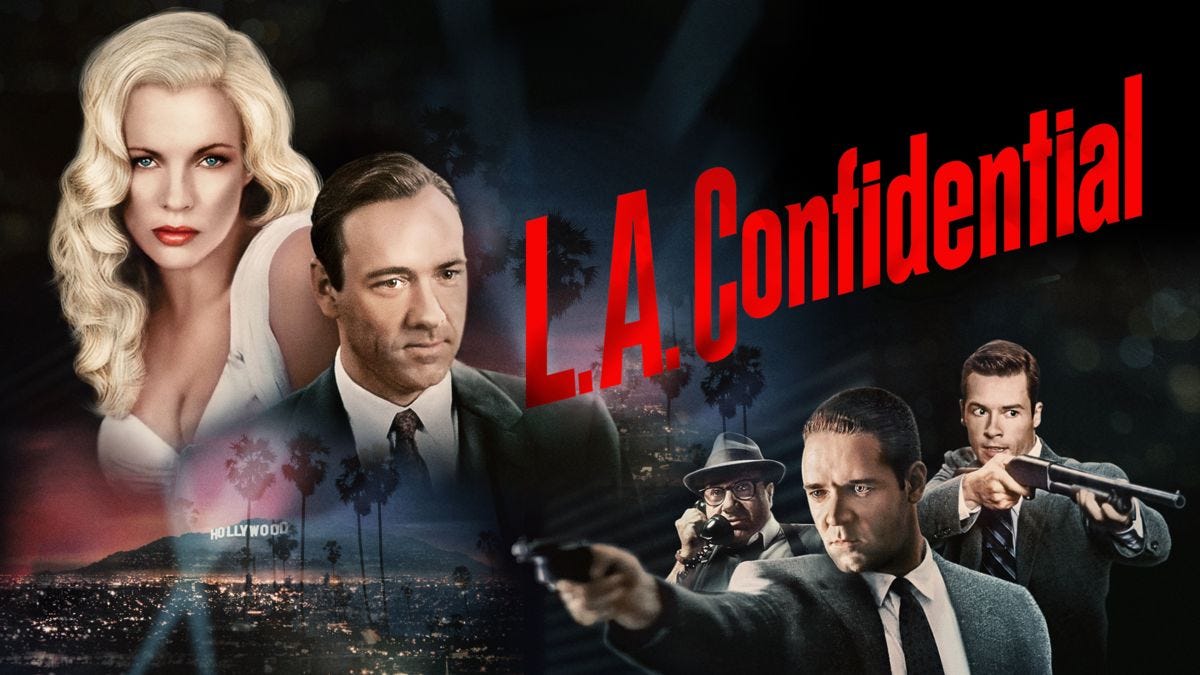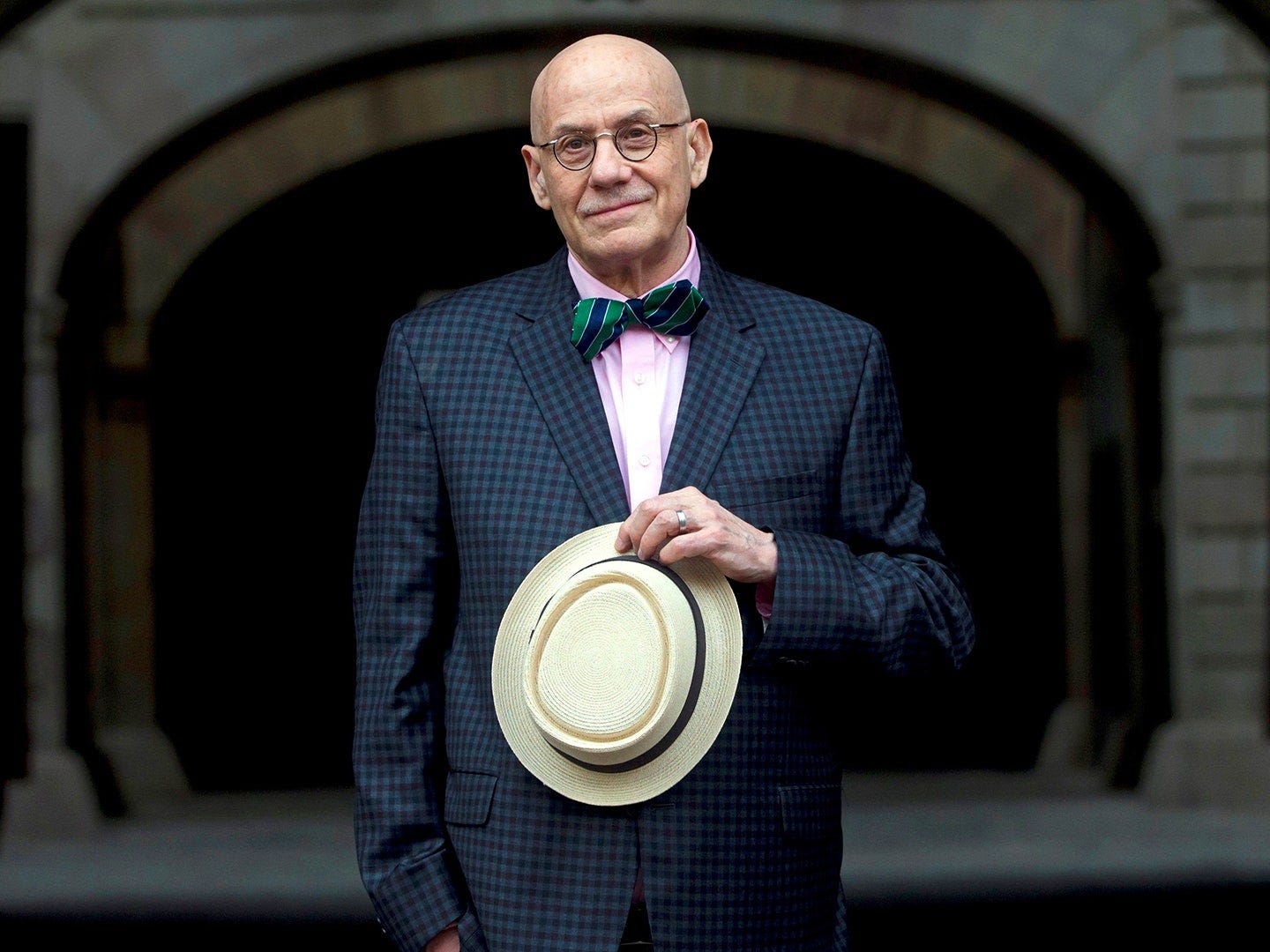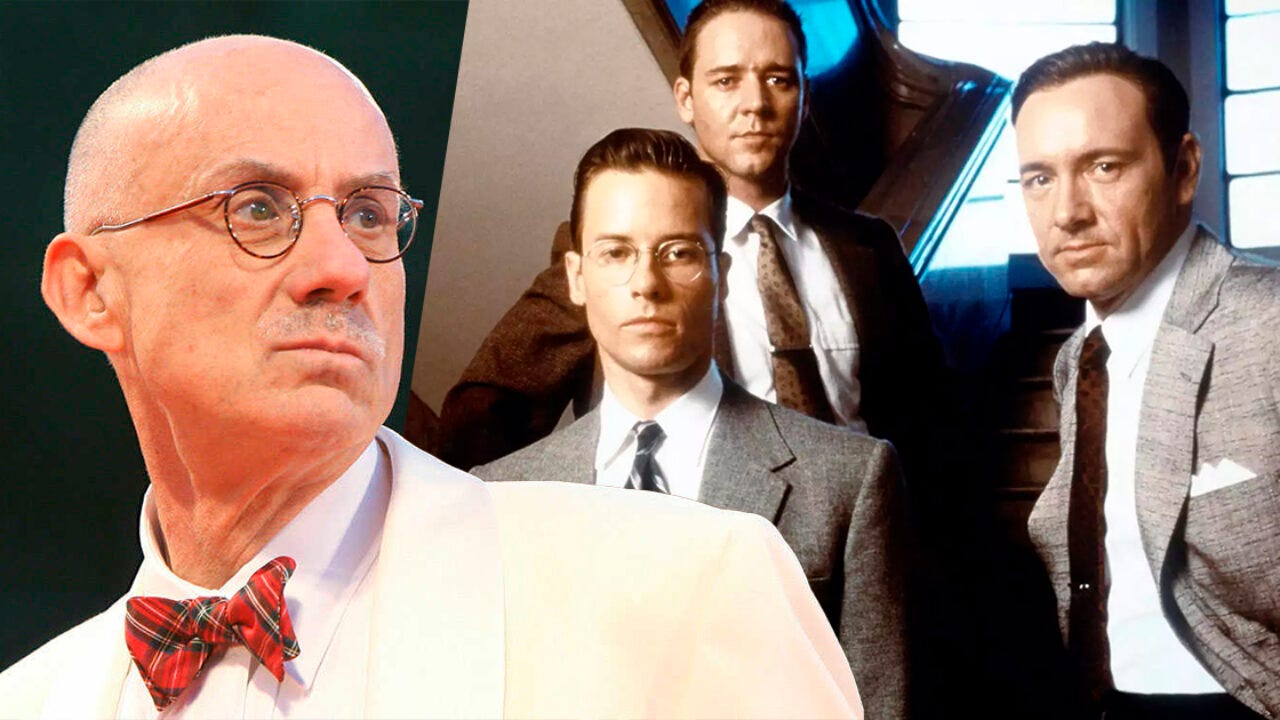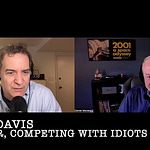You can see the video version below. Spoilers abound.
A stew of rotten meat and corruption; a sprawling, Dickensian look at a city without any of that author’s love of humanity; our American Iliad—James Ellroy’s L. A. Confidential inspires this kind of praise. Everything about the novel and its author is over-the-top and readers find his work to be kryptonite or cocaine: there’s no middle ground. I’ve had one friend tell me that he had seldom read anything as powerful as Blood’s a Rover and another compare American Tabloid to fingernails on a blackboard. Look on Goodreads and you’ll find reviews like, “I hate the jivey style—it tries too hard” as well as, “Have you ever been hit with brass knuckles? Neither have I, but I think you might feel the same way that you do when you have finished this modern noir classic” (and that’s from a five-star review). L. A. Confidential is the kind of book that makes its admirers urge it upon other people whom they think can handle it: you’ll give it to a weird cousin but not a maiden aunt. It’s rough going, filled with physical, emotional, and even stylistic violence, and tops itself every fifty pages until, over 500 pages in, the reader thinks What else could possibly happen here? And then it all does.
Steven Powell, a true believer and fellow fan of the Demon Dog of Crime Fiction, has been reading and writing about Ellroy for years. His terrific new authorized biography, Love Me Fierce in Danger: The Life of James Ellroy, is a study of the man and the American mythology he has both satirized and sustained. I interviewed Steven on the New Books Network and we had such a good time talking about Ellroy that we decided to have another conversation. In this episode of Pages and Frames, we talk about Ellroy’s 1990 novel L. A. Confidential and Curtis Hanson’s 1997 adaptation.
That a novel as labyrinthine as this could be condensed to two hours and still capture some sense of its themes is as incredible as the actions of its characters. Ellroy called the book “unsavory, unapologetically dark, untamable, and altogether unsuited to the screen,” but Brian Helgeland was convinced he could do it and director Curtis Hanson gave him the go-ahead. The film was a great success, launching the careers of Guy Pearce and Russell Crowe, and showered with praise from all directions—save one.
“Ellroy’s initial reaction,” Powell writes, “was somewhere between dislike and indifference, but in his heart, he knew this was how he was always going to feel” (199). Since then, Ellroy voiced strong opinions about his dislike of the film and seemed to have stepped over the bounds of good taste when he told Michael Connolly in 2023 that, although viewers love the film, “I think it’s turkey of the highest form. I think Russell Crowe and Kim Basinger are impotent. The director died, so now I can disparage the movie.”
However, this callousness may be part of the Demon Dog persona. When Hanson died in 2016, Ellroy wrote an affectionate appreciation of him for Variety that began:
My strange and strangely gifted friend Curtis died earlier this week. His film of my novel L.A. Confidential was a signature moment in my life. The signature was his, more than mine. Thus, this eulogy and post-mortem note of thanks for the splendid gift he gave me.
And after praising Hanson as a great director whose films “explore and never explode,” he states of L. A. Confidential, “What I failed to feel, I admired. What I lost in emotional pop, I regained in a rush of breathtaking craftsmanship.” He also notes what every viewer who knows the book feels after the lights come back on:
I conceived a tale of 1953 L.A. and populated it with men and women in extremis. Curtis Hanson rearranged my world and repopulated it with men and women less extreme than mine. My plotlines were reduced and re-stitched, my time frame was compressed, my love stories were re-triangulated. I created a world on paper. Curtis Hanson re-created it for film. It was my world but his world but my world to the point where all claims of ownership were blurred and lost. My dramatic sense and Curtis’s dramatic sense were always at odds. It didn’t matter. I don’t make movies, Curtis Hanson didn’t write novels. He gave me the gift of my words in a luminous new form.
All true, but not “turkey” either: would we really want a full adaptation of the book, released in two large installments like Dune or a series on Netflix spanning twelve hours? (This is a false wish, since the book is so deliberately non-PC that Netflix would never touch it.) Hanson’s film is “a luminous new form” of Ellroy’s novel that rewards Ellroy’s readers with its attention to detail and capturing of the spirit of the novel. Both forms of L. A. Confidential complement each other in a way that few sets of pages and frames do: one could see the film and then read the book, or vice-versa, without any loss of engagement. Despite what Ellroy says, Steven and I talk about the perfect casting, the reworking of some of the plotlines, and the ways in which Hanson kept the core stories of Bud White, Ed Exley, and Jack Vincennes intact and comprehensible for an uninitiated viewer, much like Zach Snyder did in 2009 when he helmed the film version of a sprawling and complex novel (although to much less acclaim).
The novel’s epigraph is hundred-proof Ellroy: “A glory that costs everything and means nothing.” It applies to many of its characters, especially Edmund Exley, who stands at the end “alone with his dead” and the bargain he has made with the past. Read more of Ellroy’s work and you’ll see that this line sometimes extends to the city as a whole—or, in the case of American Tabloid, which Ellroy would publish five years later—the whole country. In Ellroy’s novels, the arc of the moral universe isn’t long or bending toward justice; it ricochets off the walls and careens off of anything that seems stable: families, politics, civic institutions, cultural figures are all fair targets and nobody comes out wearing a spotless white shirt. Characters choose ambition over decency and death over honesty and the sins of the fathers are more than visited upon the sons: they metastasize and continue their effects across generations.
As Ellroy says at the beginning of American Tabloid, “Here’s to them.”















Share this post